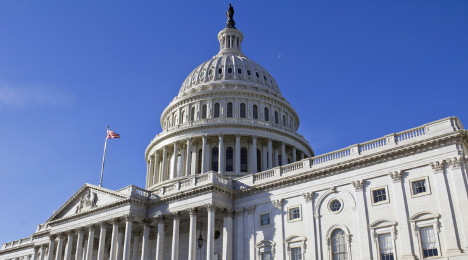Measure to rescind CFPB guidance moves beyond House committee

By subscribing, you agree to receive communications from Auto Remarketing and our partners in accordance with our Privacy Policy. We may share your information with select partners and sponsors who may contact you about their products and services. You may unsubscribe at any time.
WASHINGTON. D.C. –
In a development cheered by the National Automobile Dealers Association, a proposal to modify how the Consumer Financial Protection Bureau oversees indirect auto financing took one step forward on Wednesday, moving beyond the House Financial Services Committee now to be considered by the entire chamber.
Rep. Frank Guinta, a New Hampshire Republican, introduced H.R. 1737 — the Reforming CFPB Indirect Auto Financing Guidance Act of 2015 — with Rep. Ed Perlmutter, a Colorado Democrat, to rescind what they called the “flawed” guidance from the CFPB issued in a way that “blatantly denies public participation and due process and harms consumers by limiting their ability to obtain discounted auto financing.”
Joining Guinta and Perlmutter, this bipartisan bill has 126 cosponsors. H.R. 1737 passed the House Financial Services Committee by a vote of 47-10 during a hearing that became lively when this measure was considered on Wednesday.
H.R. 1737 now awaits consideration by the entire House.
“In 2013, the CFPB implemented guidance which has threatened auto dealers flexibility to discount interest rates for consumers and severely decreased competitiveness in the auto industry market. Even worse, the CFPB issued the flawed guidance without providing a public comment period for consumers, small businesses or stakeholders,” Guinta said.
“This bipartisan bill will provide as many opportunities as possible for Granite Staters — from the single, working mother in Manchester to the small business owner on the Seacoast to the hunters of the north country — to receive the best financing required to achieve car ownership,” he continued. “I look forward to this bill going to the House floor where it will be voted on.”
Subscribe to Auto Remarketing to stay informed and stay ahead.
By subscribing, you agree to receive communications from Auto Remarketing and our partners in accordance with our Privacy Policy. We may share your information with select partners and sponsors who may contact you about their products and services. You may unsubscribe at any time.
The bill would rescind the CFPB’s 2013 guidance to auto finance companies, require public input and cost impacts of future guidance, require transparency in the process and require the agency to work in consultation with other government agencies that Congress vested with regulatory authority.
“We commend Congressman Guinta for leading the bipartisan effort to repeal the CFPB’s flawed guidance on indirect auto financing and standing up for consumers and small business auto dealers in New Hampshire and throughout the nation,” NADA president Peter Welch said.
Welch explained the CFPB in 2013 issued a guidance urging auto finance to move away from discountable compensation for dealers who arrange credit for their customers, and instead compensate dealers with non-negotiable payments like flat fees. BB&T Dealer Services made the move to this strategy earlier this summer.
If enacted by more finance companies, NADA believes the policy would mean that consumers would no longer be able to negotiate a lower rate on credit with their dealer in the purchase. For millions of consumers, NADA and other organizations contend this practice would reduce access to lower interest rates on their vehicle installment contracts.
Rather than create new regulations, NADA, the National Association of Minority Auto Dealers (NAMAD) and the American International Automobile Dealers Association (AIADA) have issued a compliance program to dealers that would address fair credit risks in the automotive marketplace. The program is based on an existing U.S. Department of Justice model to address fair credit risk. This program is superior to the CFPB's model, as the DOJ program addresses fair credit risk without decreasing competition and harming consumers.
“As a matter of principle, consumers have the right to negotiate, the right to seek a better deal, and the right to choose the loan that’s best for them, but the CFPB has been trying to take that right away,” Welch said.
“When you’re paying $30,000 for a car and stretching to do it, consumers should have every possible financial advantage possible. No government institution should deny that. That’s not what Washington is supposed to do,” he went on to say.
For a copy of H.R. 1737, go here.


